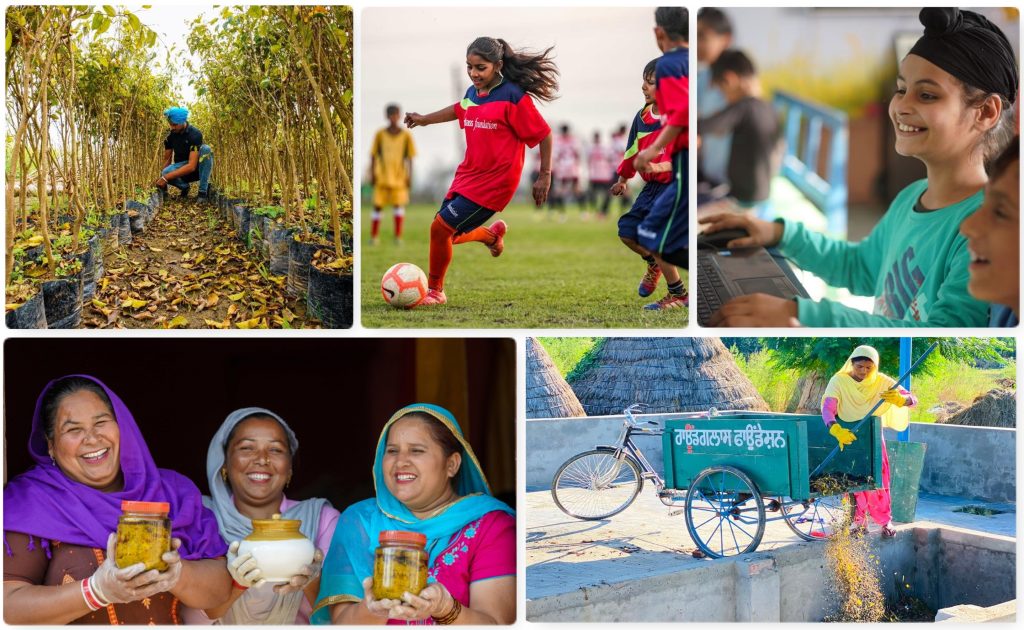
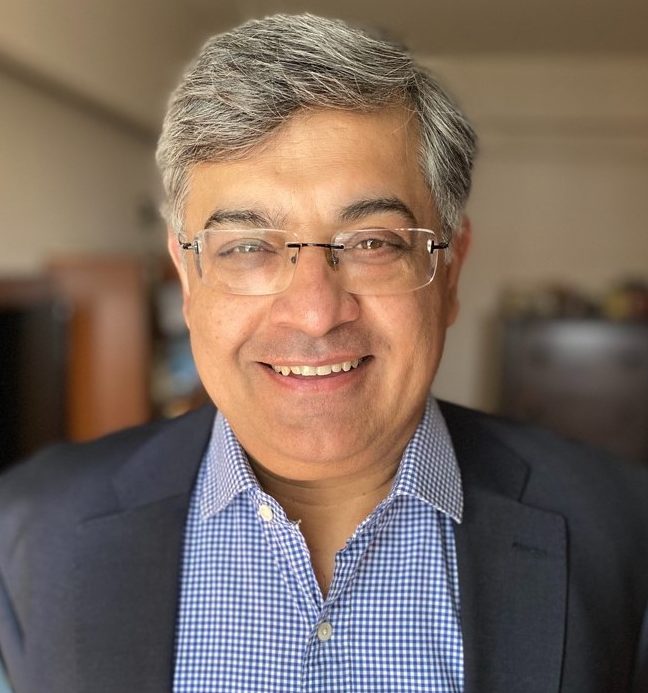 Vishal Chowla is the Leader of the Roundglass Foundation.
Vishal Chowla is the Leader of the Roundglass Foundation.
Climate change, food security, sanitation and hygiene, and equitable opportunities for youth and women are some of the global issues identified by the United Nations that need urgent attention from world leaders and everyone else who has a stake in the future of humanity.
Roundglass Foundation is addressing these challenges by building global models for social change and harnessing the power of collective action. We empower communities to take control of their future while addressing global challenges such as climate change, food security, youth engagement, and women’s empowerment. Our dedicated teams develop and scale innovative solutions, backed by robust evidence, to drive meaningful change.
We are steering the largest experiment in the world to create an ecosystem that leverages technology, innovation, and collaboration to promote the holistic well-being of humanity and the planet.
A defining aspect of these models of change is community partnership and engagement. Our collective experience (including mine, as a professional in the social and development sector) has taught us that community engagement is crucial to manifesting positive change at the grassroots level. We may think of rural communities as beneficiaries, but the fact remains that they have just as much to offer us in the form of traditional knowledge and wisdom as we do. So, while designing grassroots programmes to enable behaviour change and progress, we need to engage with them as partners and leaders besides seeking support and engagement with the academia, the government, police, NGOs, and subject matter experts.
The Beginning
Roundglass Foundation was started in 2018 by Seattle-based entrepreneur and philanthropist Sunny Gurpreet Singh to re-introduce holistic well-being to Punjab. Soon enough we realised that our models of change could be applied to any geography of the world to enable the well-being of people and the planet by focusing on three key impact areas — environment and sustainability, youth development and women’s empowerment. We run several on-the-ground programmes under these key areas by engaging with the village community, village and local administration, youth, and volunteers.
A defining aspect of these models of change is community partnership and engagement. Our collective experience (including mine, as a professional in the social and development sector) has taught us that community engagement is crucial to manifesting positive change at the grassroots level. We may think of rural communities as beneficiaries, but the fact remains that they have just as much to offer us in the form of traditional knowledge and wisdom as we do. So, while designing grassroots programmes to enable behaviour change and progress, we need to engage with them as partners and leaders besides seeking support and engagement with the academia, the government, police, NGOs, and subject matter experts.
Thanks to this community-led approach, our Foundation has impacted 2.0 million people across 1,900 villages in Punjab since 2018. We have planted more than two million native trees, made 225 villages litter-free, and enabled the well-being of more than 13,000 rural children through sports and tech-powered learning.
Supporting Environment and Sustainability in Rural Communities
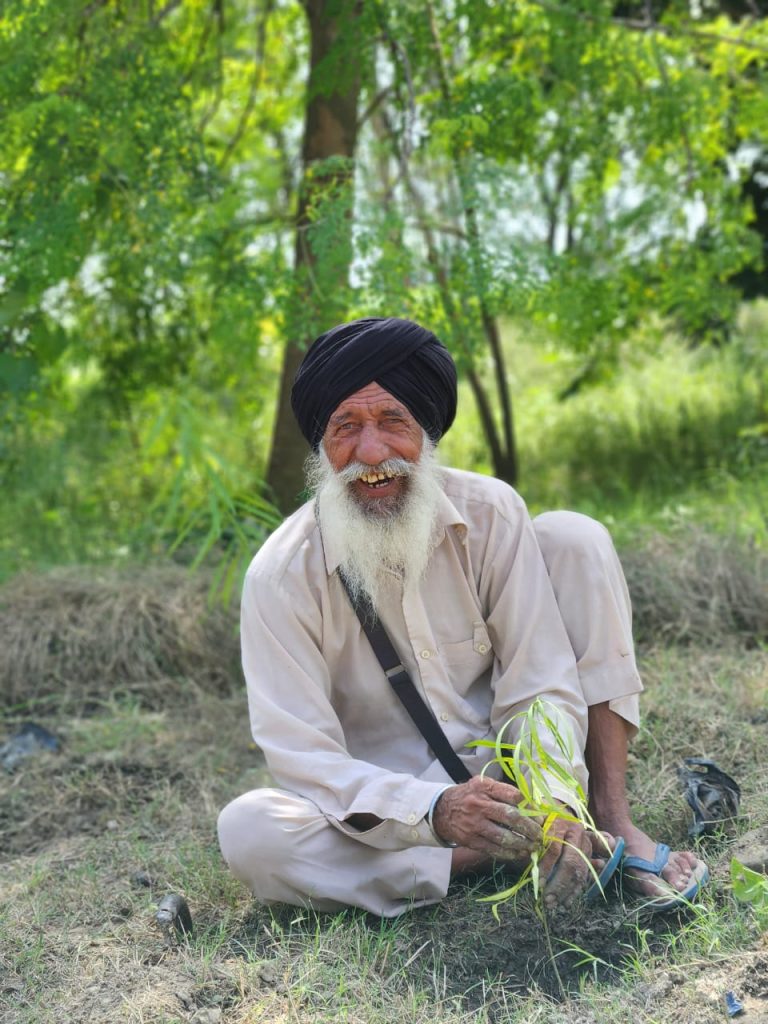 We currently have three programmes under Environment and Sustainability – The Billion Tree Project, Waste Management and Regen Agriculture. The Billion Tree Project aims to regreen Punjab by planting one billion native trees by 2035. Low forest cover leads to serious environmental challenges such as biodiversity loss, climate change events, low water table and soil erosion.
We currently have three programmes under Environment and Sustainability – The Billion Tree Project, Waste Management and Regen Agriculture. The Billion Tree Project aims to regreen Punjab by planting one billion native trees by 2035. Low forest cover leads to serious environmental challenges such as biodiversity loss, climate change events, low water table and soil erosion.
We have planted more than two million native trees in 1,350 villages in Faridkot, Derabassi, Mogal, Mohali, Sangrur, etc., leading to the sequestration of 35,000 tons of carbon and the return of birds, bees and other wild 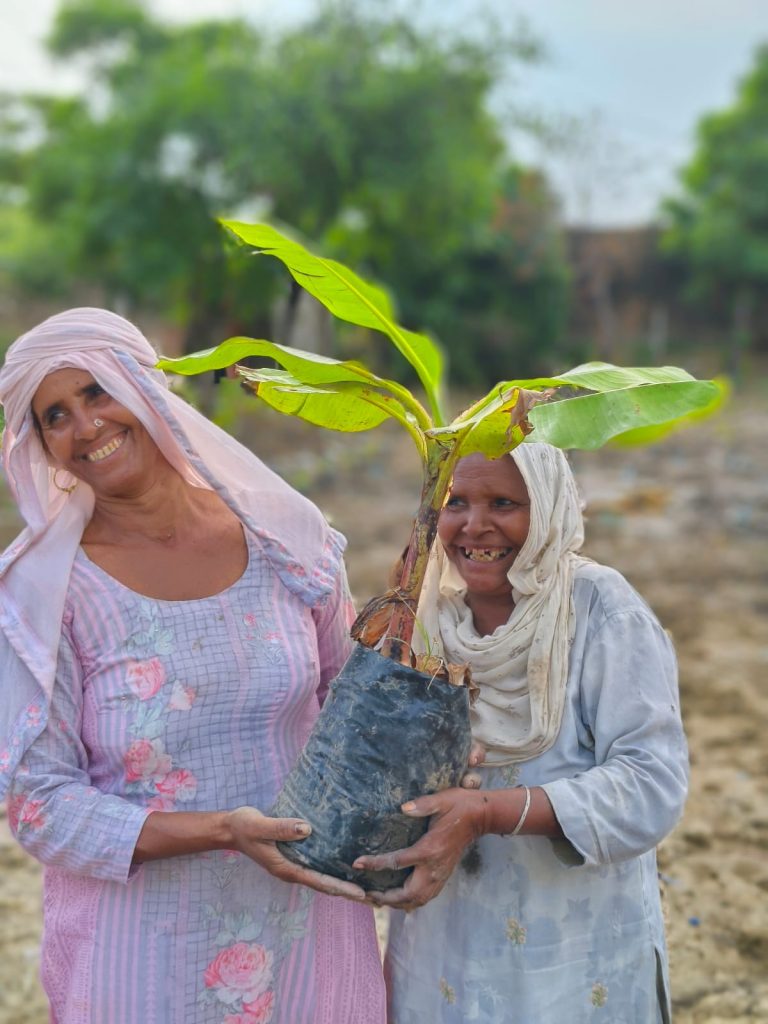 creatures that live on and off these trees. We believe in taking a strictly scientific approach to tree plantation. For example, we plant native species such as farah, desi kikar, desi beri, reru, and phulai because they can thrive in local conditions and provide a habitat for local wildlife. We cultivate over 60 varieties of native species at our nurseries.
creatures that live on and off these trees. We believe in taking a strictly scientific approach to tree plantation. For example, we plant native species such as farah, desi kikar, desi beri, reru, and phulai because they can thrive in local conditions and provide a habitat for local wildlife. We cultivate over 60 varieties of native species at our nurseries.
In addition to climate and environmental action, this programme has enabled economic opportunities for more than 10,000 MGNREGA workers engaged in our nurseries and supporting our plantation activities.
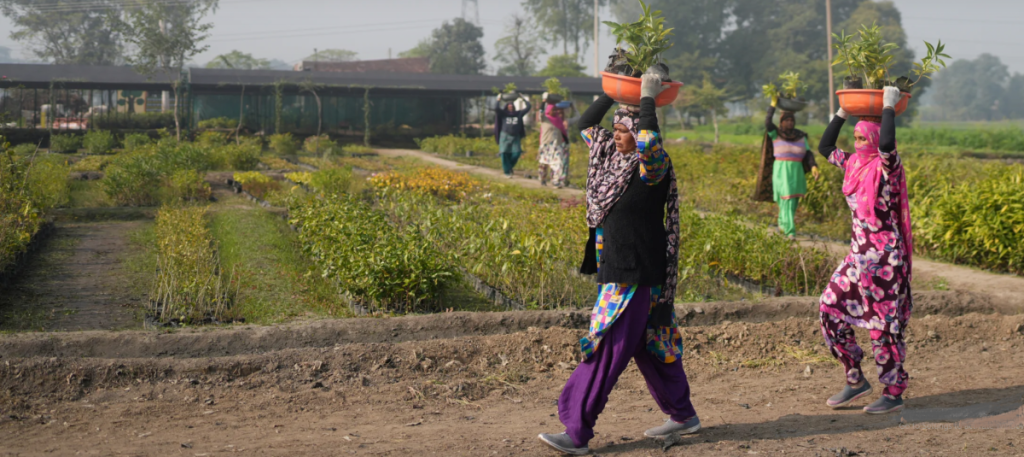
It is important to realise that agriculture plays a vital role in addressing environmental and sustainability challenges. The detrimental effects of unsustainable farming practices, including mono-cropping, excessive fertiliser use, and overexploitation of water resources, have had a widespread impact on farming outcomes globally, including in Punjab.
Waste Management
The Waste Management programme promotes a decentralised model for waste segregation and composting for efficient and sustainable waste management in rural settings. We have been successful in making more than 200 villages in Punjab litter-free through this programme. Its primary aim is to change the mindset and behaviour of people towards waste disposal and make them sensitised and aware of segregating waste at source. We also support the village community in constructing and running compost pits to convert wet waste into compost.
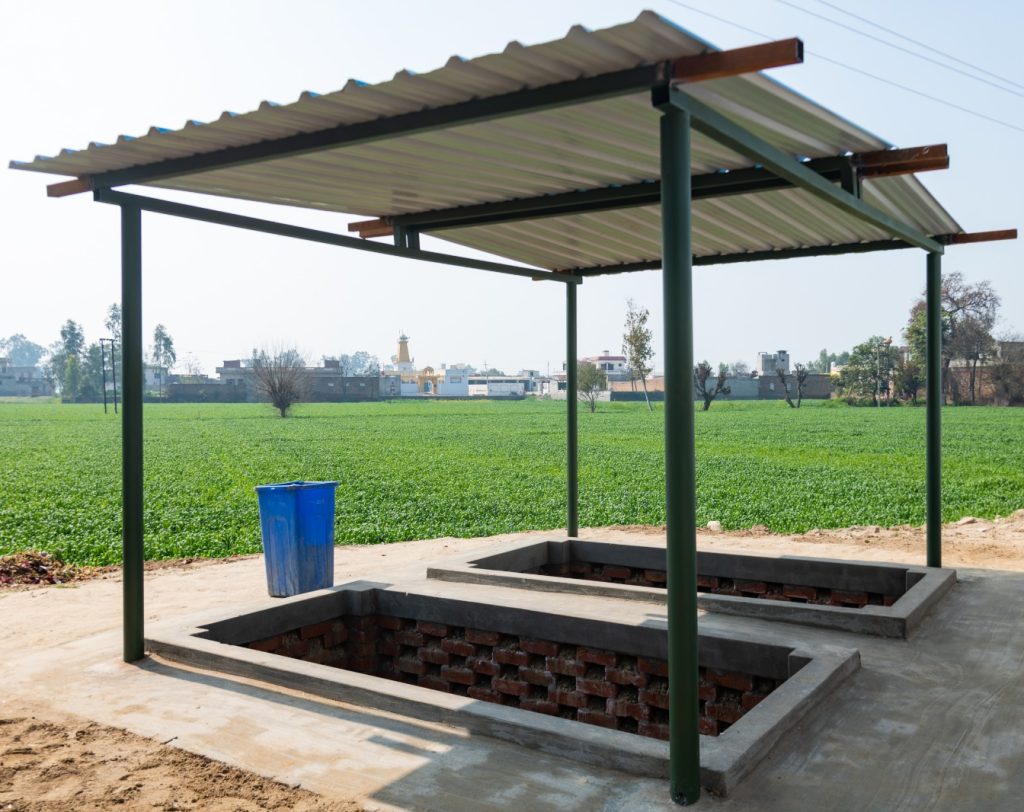
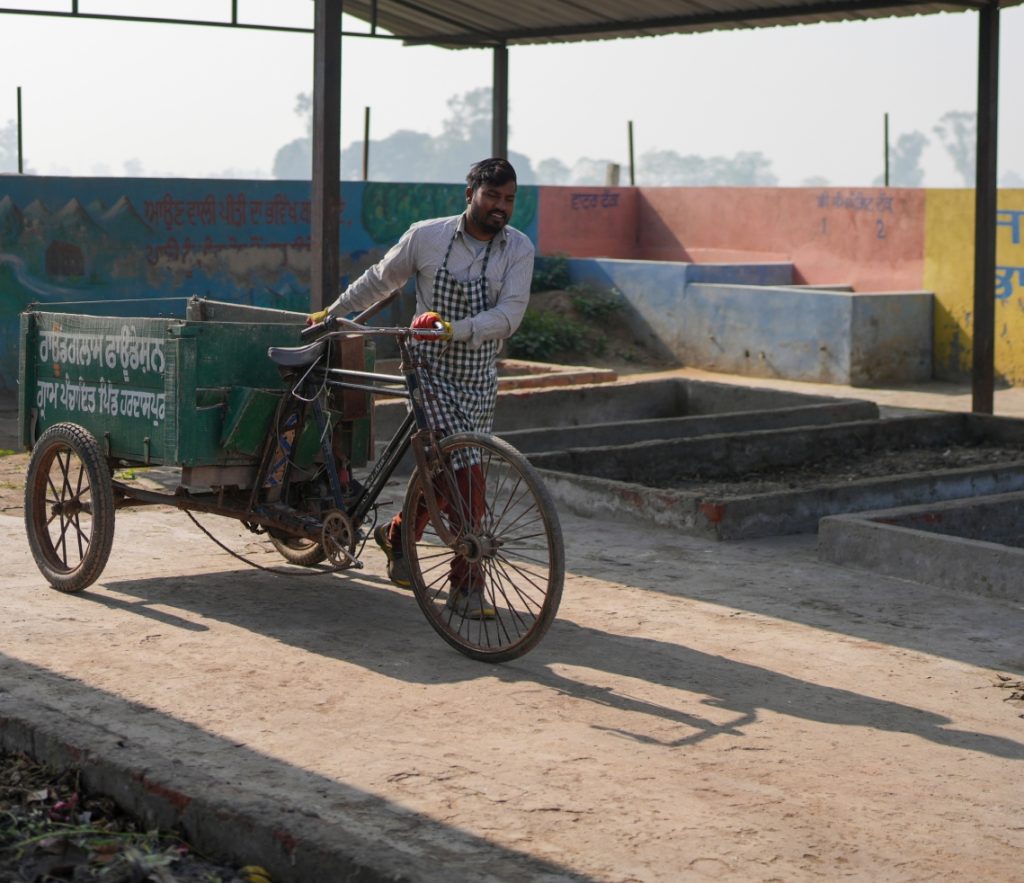
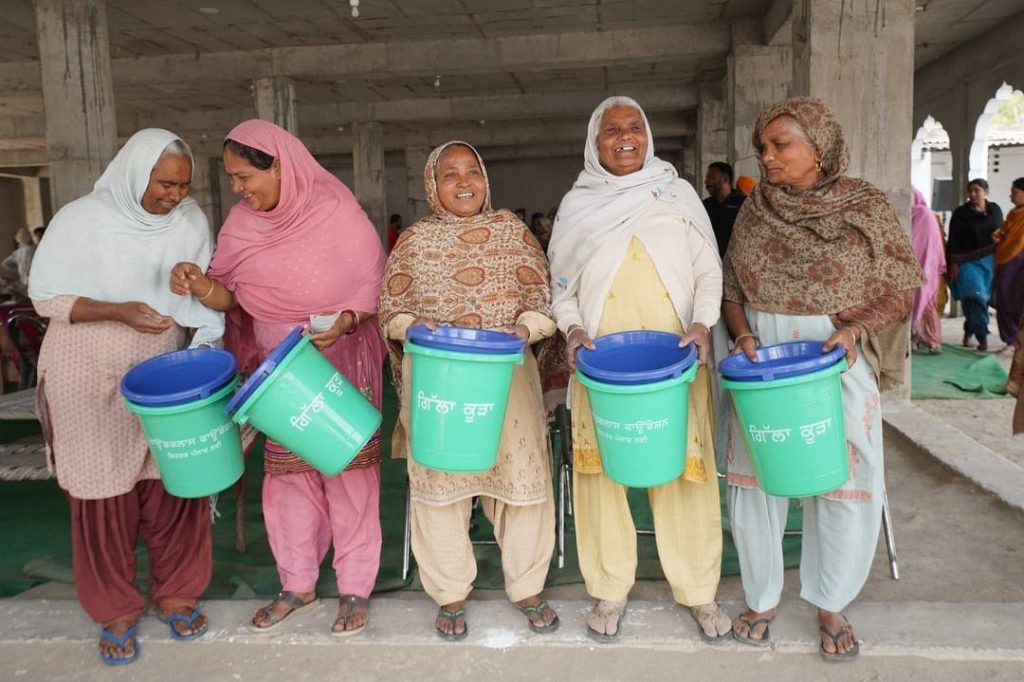
It is important to realise that agriculture plays a vital role in addressing environmental and sustainability challenges. The detrimental effects of unsustainable farming practices, including mono-cropping, excessive fertiliser use, and overexploitation of water resources, have had a widespread impact on farming outcomes globally, including in Punjab.
Our Regen Agriculture programme, launched in April this year, aims to reverse this trend by promoting regenerative farming practices among the farming community in the State. We are engaging with other relevant stakeholders like academia, subject matter experts and youth to overcome challenges such as poor soil health, depleting water tables, and declining farmer incomes.
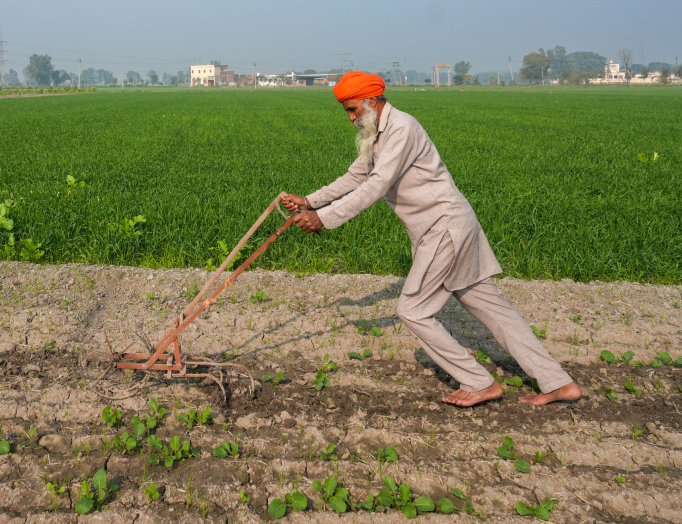
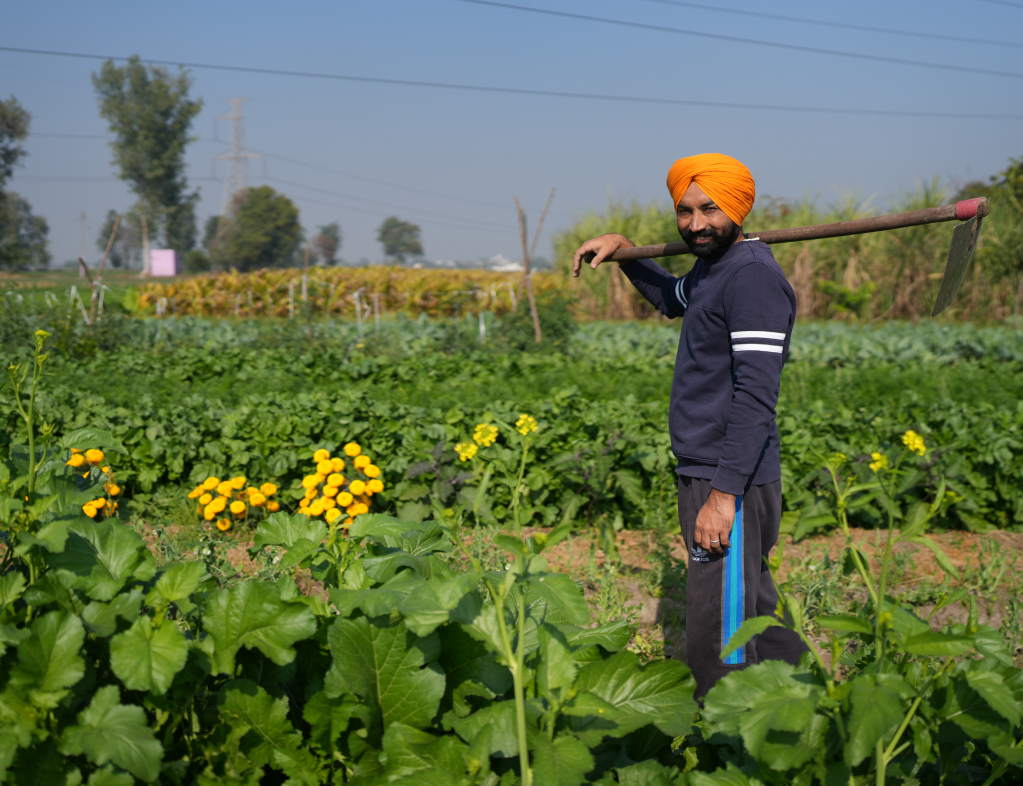
|
We are running 275 Learn Labs in community spaces like gurudwaras in villages and urban slums where more than 5,000 children come daily to learn and play. Children can access the internet on laptops to supplement school-based learning and develop new skills. For some children from deeply impoverished backgrounds, these Labs provide a safe space to experience the pure joy of childhood. Each Lab is managed by a Changemaker who mentors and enables these children.
Ensuring the Well-being of Women and Children
Women and children are the centre of any community. By supporting them, we are ensuring the health and well-being of the community.
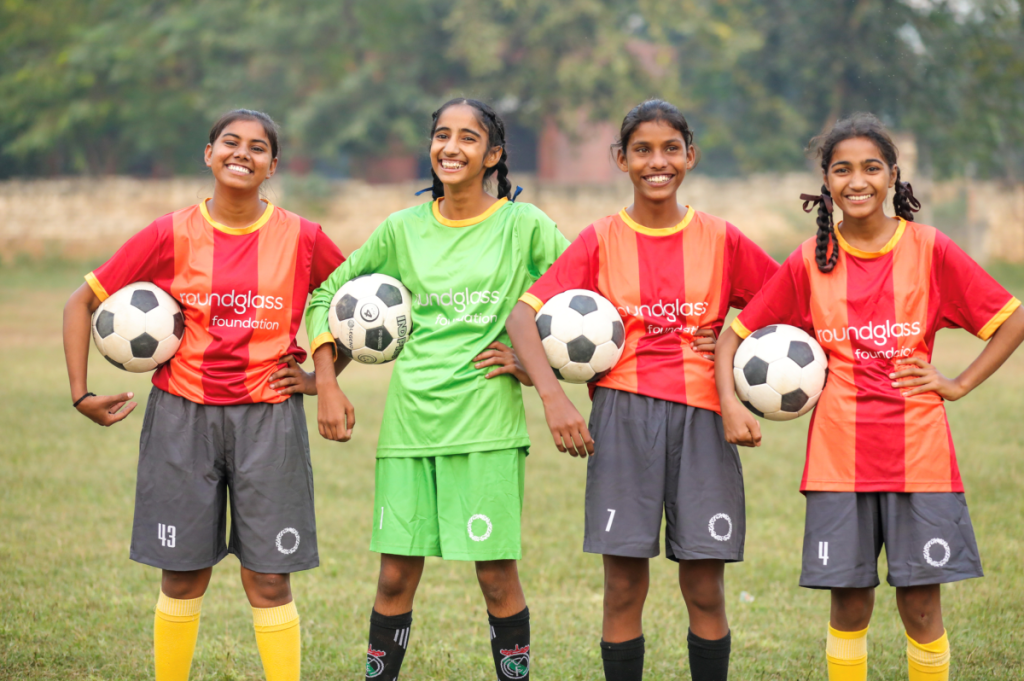 We see sports as a medium to nurture children’s potential for leadership, teamwork, and discipline, and to encourage them to make positive life choices. Our Sports for Development programme operates 268 Sports Centres in 232 villages, engaging 8,400-plus children; and 24 per cent of these are girls. Under this programme, we provide trained football coaches and equipment to the
We see sports as a medium to nurture children’s potential for leadership, teamwork, and discipline, and to encourage them to make positive life choices. Our Sports for Development programme operates 268 Sports Centres in 232 villages, engaging 8,400-plus children; and 24 per cent of these are girls. Under this programme, we provide trained football coaches and equipment to the 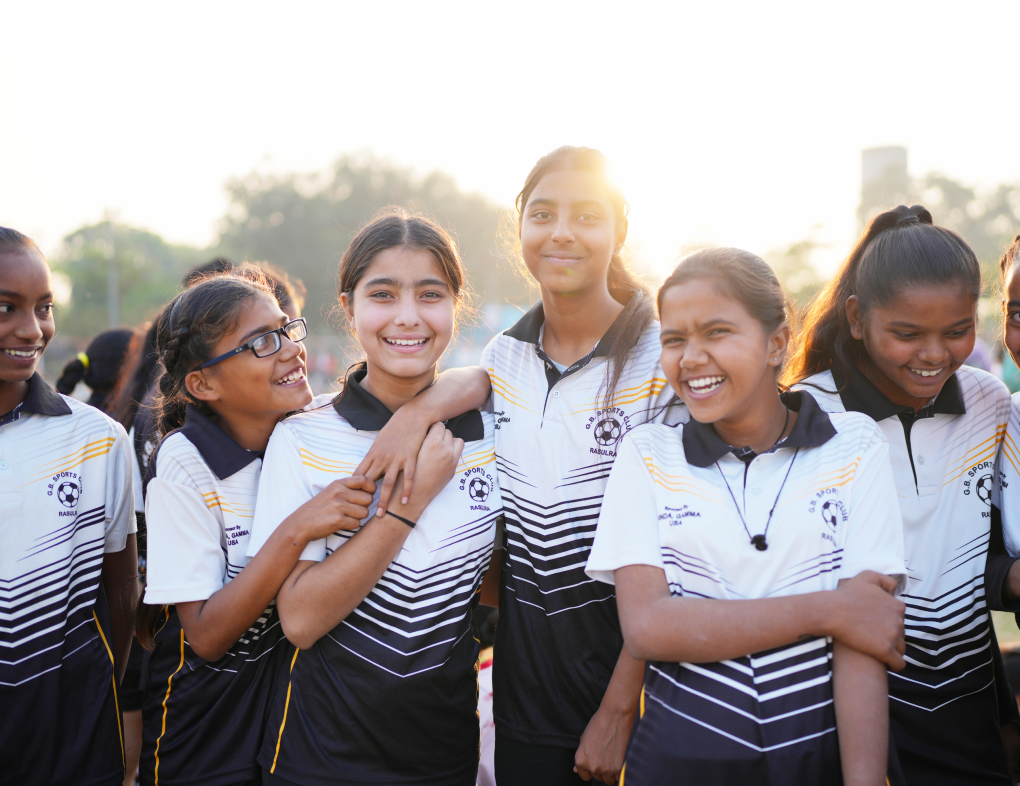 children; encouraging them to come out to the ground to play.
children; encouraging them to come out to the ground to play.
We are experiencing a lot of success with our ‘One Girl One Football‘ initiative, which uses the sport to promote changes in behaviour around gender. Over 2,000 girls from various villages are coming out every day to play. They are challenging social norms and gender stereotypes. Parents who previously prohibited their daughters from playing outside are now enthusiastically cheering for them as they score goals. Girls who had never kicked a football are now participating in regional matches. This initiative has demonstrated the tremendous impact of sports as a catalyst for social change.
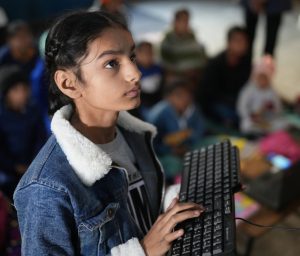 Like sports, technology has the potential to accelerate growth and progress. Through our Learn Labs programme, we enable curious young minds to learn and expand their worldview by using the internet. The programme imparts life skills including foundational literacy, creativity, problem-solving, and computer skills to children in the 6-14 age group.
Like sports, technology has the potential to accelerate growth and progress. Through our Learn Labs programme, we enable curious young minds to learn and expand their worldview by using the internet. The programme imparts life skills including foundational literacy, creativity, problem-solving, and computer skills to children in the 6-14 age group.
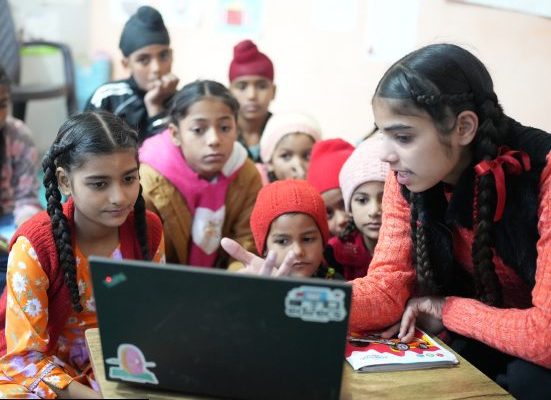 We are running 275 Learn Labs in community spaces like gurudwaras in villages and urban slums where more than 5,000 children come daily to learn and play. Children can access the internet on laptops to supplement school-based learning and develop new skills. For some children from deeply impoverished backgrounds, these Labs provide a safe space to experience the pure joy of childhood. Each Lab is managed by a Changemaker who mentors and enables these children.
We are running 275 Learn Labs in community spaces like gurudwaras in villages and urban slums where more than 5,000 children come daily to learn and play. Children can access the internet on laptops to supplement school-based learning and develop new skills. For some children from deeply impoverished backgrounds, these Labs provide a safe space to experience the pure joy of childhood. Each Lab is managed by a Changemaker who mentors and enables these children.
We run two programmes for women’s empowerment – Women’s Livelihood and Health and Well-being. These programmes empower them with relevant knowledge and skills needed to create sustainable livelihood sources. At the same time, our programmes are designed to break the transgenerational cycle of gender bias and give women a voice and a place on the table.
Women’s Livelihood programme encourages socio-economic empowerment of women through the formation of Self-Help Groups. There are 13 SHGs with 100 members right now.
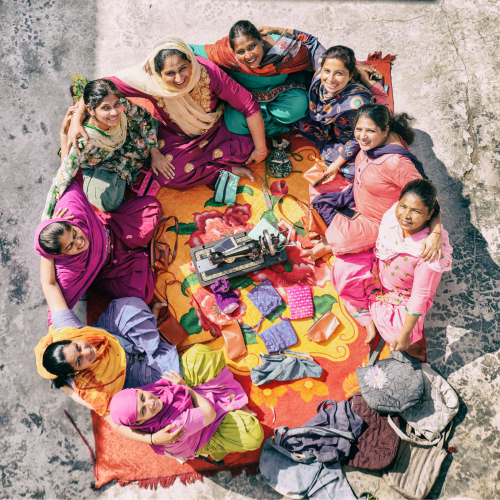
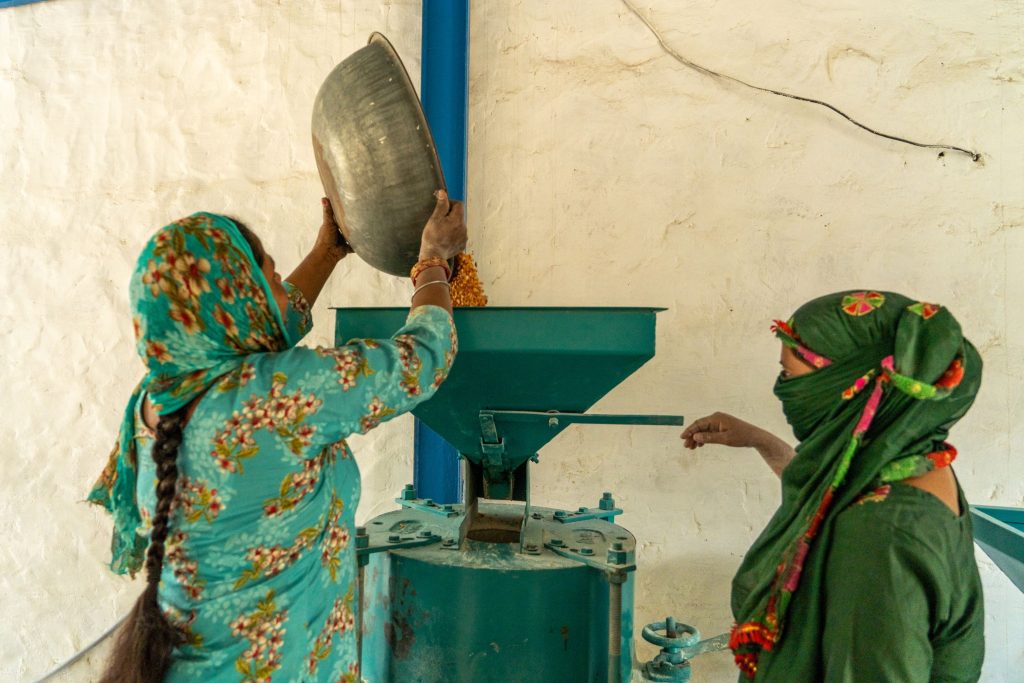
Health and Well-being programme equips adolescent girls with correct information and knowledge about their health and hygiene by organising awareness workshops. It also focuses on introducing yoga as a well-being practice in village communities and training village youth as yoga trainers.
The global models of change we create in Punjab can be replicated in any part of the world. Going forward, we want to scale our work and expand to different parts of the world by leveraging philanthropic partnerships and engaging with communities. We are boldly leading transformative change. We urge all of you to join us on this journey and contribute to building global models for social change.
The People of Punjab – Our Biggest Supporters
We are continuously striving to build healthier, happier, and more sustainable rural communities in Punjab. This would have been impossible without the unwavering support and love of the people of Punjab, who have been our biggest champions. We are humbled that they share our vision for Punjab and have chosen to walk beside us on this transformative journey.
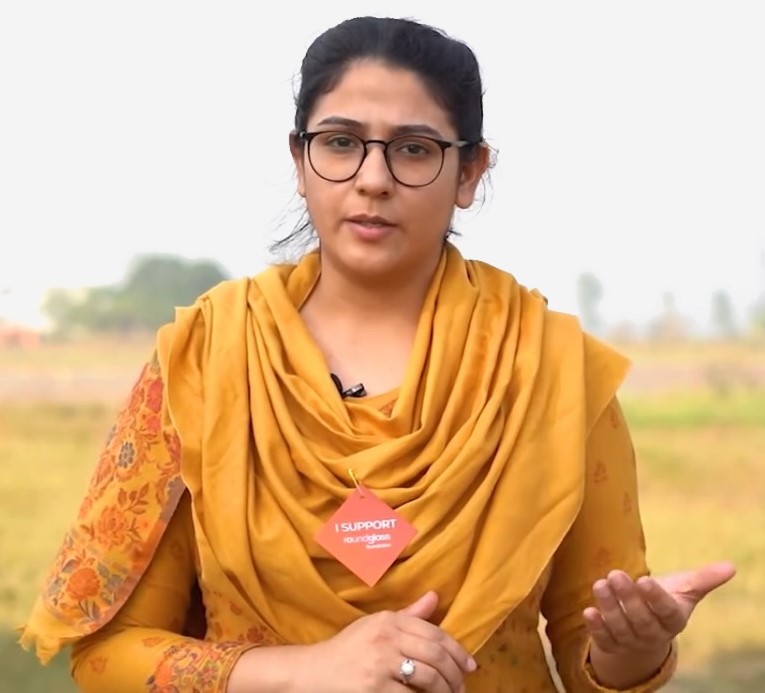 Take the example of Sheshandeep Kaur, the Sarpanch of Manak Khanna village in Bhatinda. Talking about The Billion Tree Project, Kaur says that the mini forest planted in her village in 2019 is now a thriving oxygen factory for the community: “The Foundation’s vision to create a better Punjab is well on its way to realisation as the younger generation has become acutely aware of its responsibility towards the environment. Roundglass Foundation has undertaken a commendable mission to plant one billion trees in Punjab, and I take great pride in being part of this initiative.”
Take the example of Sheshandeep Kaur, the Sarpanch of Manak Khanna village in Bhatinda. Talking about The Billion Tree Project, Kaur says that the mini forest planted in her village in 2019 is now a thriving oxygen factory for the community: “The Foundation’s vision to create a better Punjab is well on its way to realisation as the younger generation has become acutely aware of its responsibility towards the environment. Roundglass Foundation has undertaken a commendable mission to plant one billion trees in Punjab, and I take great pride in being part of this initiative.”
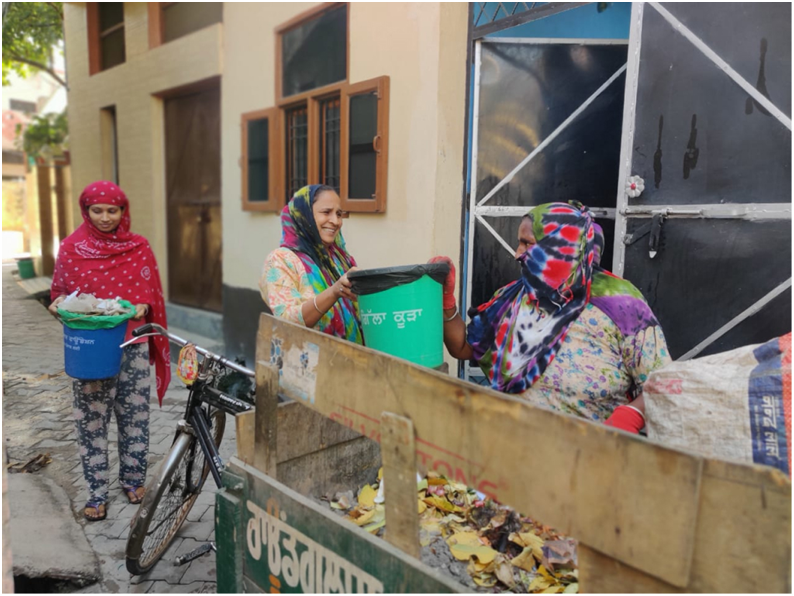 Similarly, Sher Kaur, 60, a waste collector in Jhiurheri village in Mohali says that since our Waste Management programme started, her village is no longer littered with plastic bags. “Earlier, villagers would dump their waste in rudis landfills, or burn them. All this stopped when I started collecting waste from each house as part of the Waste Management programme.”
Similarly, Sher Kaur, 60, a waste collector in Jhiurheri village in Mohali says that since our Waste Management programme started, her village is no longer littered with plastic bags. “Earlier, villagers would dump their waste in rudis landfills, or burn them. All this stopped when I started collecting waste from each house as part of the Waste Management programme.”
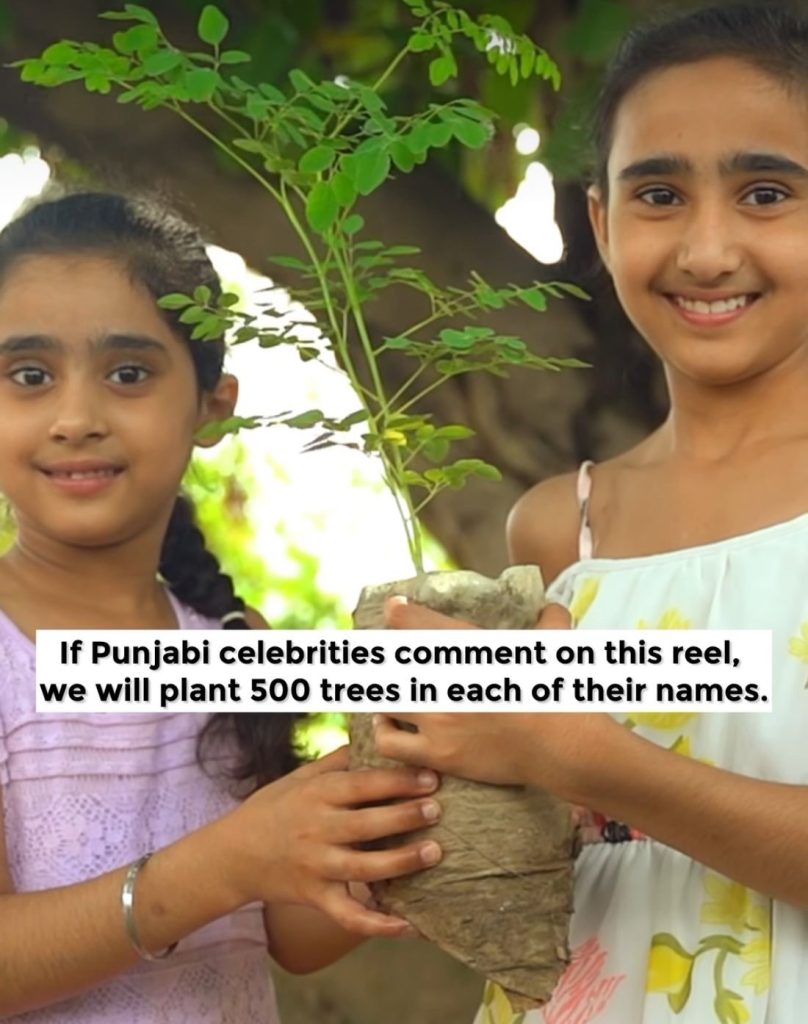 We were thrilled by the overwhelming response to our social media campaign, where we invited people to support The Billion Tree Project. In return for their support, we pledged to plant 500 trees in their name. Over 100 celebrities from Punjab, including actor Simi Chahal, singer-actor Ammy Virk, and singer-actor Nimrat Khaira, for supporting this programme. We are grateful to all these individuals and more who are our pillars of strength. Additionally, we thank our partners such as Indian Oil, UNICEF, the Art of Living, the Government of Punjab, SBI Foundation, The Nature Conservancy, and One Tree Planted, for supporting our mission.
We were thrilled by the overwhelming response to our social media campaign, where we invited people to support The Billion Tree Project. In return for their support, we pledged to plant 500 trees in their name. Over 100 celebrities from Punjab, including actor Simi Chahal, singer-actor Ammy Virk, and singer-actor Nimrat Khaira, for supporting this programme. We are grateful to all these individuals and more who are our pillars of strength. Additionally, we thank our partners such as Indian Oil, UNICEF, the Art of Living, the Government of Punjab, SBI Foundation, The Nature Conservancy, and One Tree Planted, for supporting our mission.
The Road Ahead
The global models of change we create in Punjab can be replicated in any part of the world. We chose Punjab as a starting point because our founder, Sunny Gurpreet Singh, hails from the State, and it holds a special place in his heart.
Going forward, we want to scale our work and expand to different parts of the world by leveraging philanthropic partnerships and engaging with communities. We are boldly leading transformative change. We urge all of you to join us on this journey and contribute to building global models for social change.


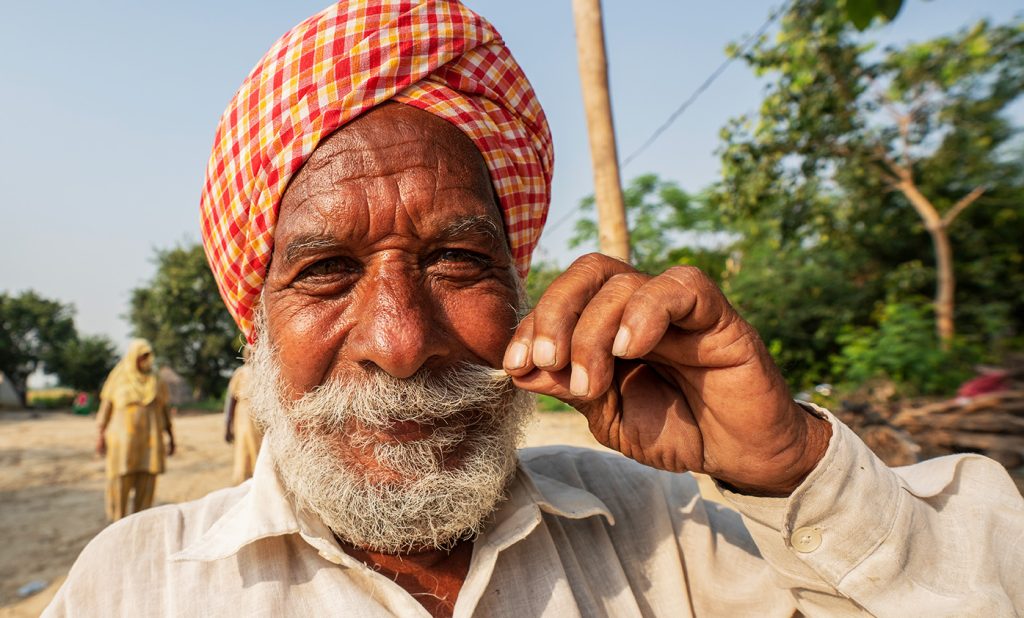 Embrace Inner Joy: The Nirmal Singh Way
Embrace Inner Joy: The Nirmal Singh Way